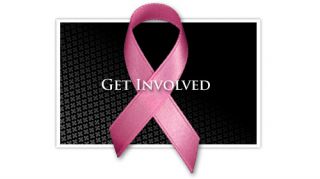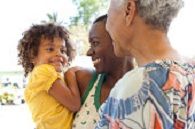Anxiety
Helping Children Cope with a Cancer Diagnosis
Tips for talking with children about Breast Cancer
Posted October 7, 2014

October is designated as National Breast Cancer Awareness month. In the United States, over 200,000 new cases of breast cancer are diagnosed last year. Furthermore, breast cancer death rates are highest for African American women, followed by non-Hispanic white women (American Cancer Society, 2014).Ten years ago, my mother was diagnosed with breast cancer. I am glad that today she is a survivor and remains healthy. Given my personal connection to breast cancer, every year I run the Susan G. Komen 5K in my mother’s honor.
Given October is Breast Cancer Awareness month, I wanted to also provide information to parents who may become diagnosed and are not sure how to talk with their children about breast cancer. Not only does cancer impact the individual, there is significant potential to affect the entire family. Therefore, families who experience breast cancer may benefit from psychological treatment. According to the American Psychological Association (APA), psychotherapy can help women learn how to cope with the physical, emotional, and lifestyle changes associated with cancer as well as with medical treatments that can be painful and traumatic. Additional benefits of therapy may include:
- learning how to explain cancer to children or how to deal with a partner's response
- discussing how to choose the right hospital or medical treatment.
- obtaining strategies on how to control stress, anxiety or depression.
- teaching patients problem-solving strategies in a supportive environment
Strategies to help children cope with a parent’s cancer diagnosis

Children take cues about cancer from parents and other adults. How a child reacts to a cancer diagnosis often depends on how their parents or other close adults handle the crisis. Although parents know this, they are under a great deal of stress and have their own intense feelings of fear and uncertainty. Sometimes, with the right kind of help, parents and their children can and do learn to cope well with cancer and its treatments.
The American Cancer Society offers the following tips for talking with children
- Be open about your experience. Some parents are afraid their children will worry more if they are told the facts about what’s happening. It’s important to keep in mind that adults and children have very different life experiences. This makes it unlikely that a child will react to a problem the same way an adult would.
- Avoid hiding your diagnosis. Cancer is an impossible secret to keep. If children think something is being kept from them, some kids will look for ways to listen without being noticed. When children hear these conversations, they often pick up on the anxiety and worry of their parents. Kids tend to be afraid and believe the worst if they haven’t been given complete information. The effort it takes to keep such secrets may rob the parent of precious energy, too.
- Inform your child before they learn through others. If children hear about their parent’s cancer from someone else, like a curious neighbor or a classmate, it can destroy the trust that parents have worked to build. If children think their parents are being vague on purpose or are trying to hide something from them, they might find it hard to know when they are being told the truth. It’s better that parents learn how to share this information truthfully, and in a way that allows the child to understand and take part in the discussion.
- Prepare your child for changes ahead. Once treatment starts, the child may see side effects like tiredness, weight changes, hair loss, or vomiting. They see that the parent is sick, and might assume that the parent is going to die. They may think that others in the family will get the same illness. They may think that life as they know it will end. Not knowing what’s going on or how to cope with it can be terrifying to a child. To avoid this, children need to be told about the illness. They should know in advance the kinds of side effects that cancer treatment might cause.
© Copyright 2014 Erlanger A. Turner, Ph.D.
Be sure to follow me on Twitter (www.twitter.com/drearlturner) and Facebook (www.facebook.com/DrEarlTurner). Join the conversation and discuss other topics related to parenting, mental health, wellness, and psychology.
References:
American Cancer Society (2014, October 7). Helping Children When a Family Member Has Cancer: Dealing With Diagnosis. Retrieved from http://www.cancer.org/treatment/childrenandcancer/helpingchildrenwhenafamilymemberhascancer/dealingwithdiagnosis/dealing-with-diagnosis-intro
American Psychological Association (2014, October 6). Breast Cancer: How your mind can help your body. Retrieved from http://www.apa.org/helpcenter/breast-cancer.aspx
Image via Getty images


